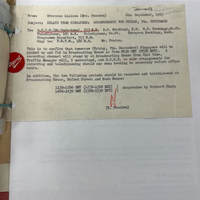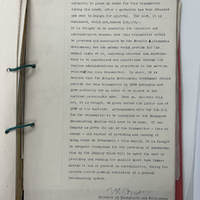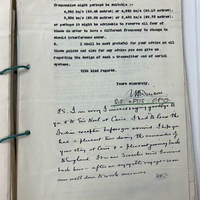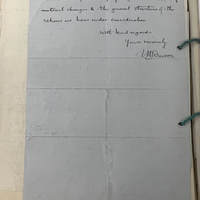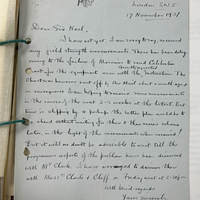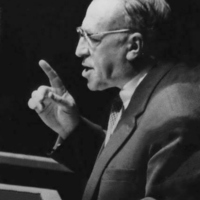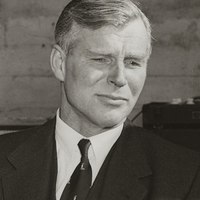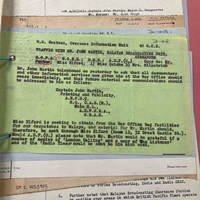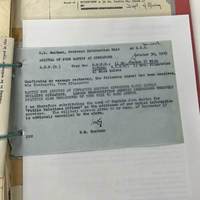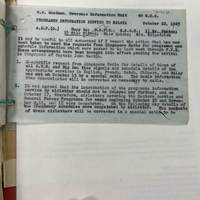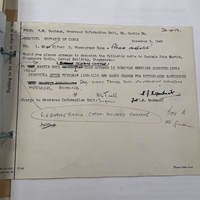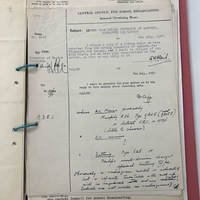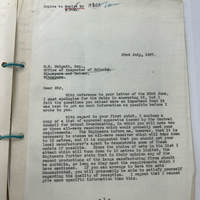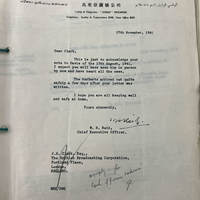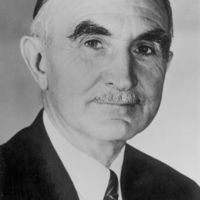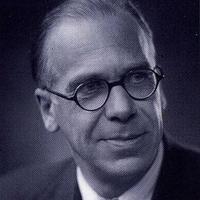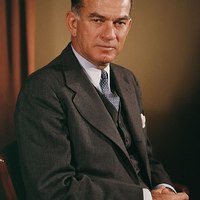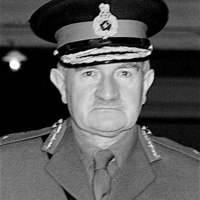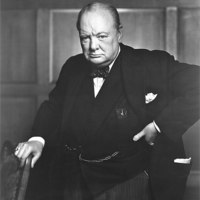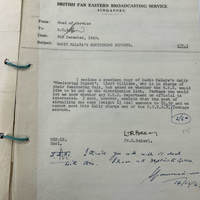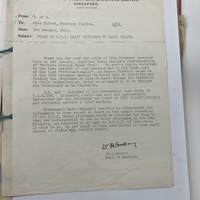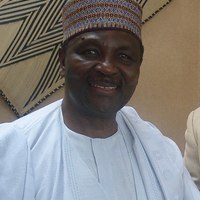Search
787 items
-
V Stocken notes that Singpore radio will be sent to and recorded by Broadcasting House on Friday, 7th of December. More »Message
-
Outlines the plans for building linked broadcasting towers in locations P. Wellesley,Batu Gajah,Kuala Lampour and the Malacca settlement. Outlines possible difficulties and funding plans. More »Message
-
Proposal of frequencies and schedule at which the transmitters will operate in Singapore. Done in order to reduce interference. More »Message
-
Letter from V.H. Winston assuring Sir Noel on testing taing place and the soil stength samples being collected. More »Message
-
V.H. Winston responds to Sir Noel on the time it will take to produce the field strength measurements which he requested. More »Message
-
Valerian Aleksandrovich Zorin (Russian: Валериан Александрович Зорин; 14 January 1902 – 14 January 1986) was a Soviet diplomat best remembered for his famous confrontation with Adlai Stevenson on 25 October 1962, during the Cuban Missile Crisis. (Wikipedia) More »Person
-
Lewis John Wynford Vaughan-Thomas (né Thomas) (15 August 1908 – 4 February 1987) was a Welsh newspaper journalist and radio and television broadcaster. In later life he took the name Vaughan-Thomas after his father. (Wikipedia) More »Person
-
Sir Vivian Ernest Fuchs ( FUUKS; 11 February 1908 – 11 November 1999) was an English scientist-explorer and expedition organizer. He led the Commonwealth Trans-Antarctic Expedition which reached the South Pole overland in 1958. (Wikipedia) More »Person
-
W.M. Goatman writes to several BBC employees, informing them of John Martin's title change in the Printing and Publicity Department. More »Message
-
WM Goatman notes John Martin's arrival in Singapore. More »Message
-
WM Goatman notes the actions that have been taken in response to Singapore Radio's requests: 1.On time signals 2. On sending program information by airletter 3. on John Martin's information 4/5. On notifications. More »Message
-
Copy of HC Fenton's telegraph on schedule changes. More »Message
-
W.R. Reid writes to Alway on his observations on the letter recieved from Holgath More »Message
-
W.R.Reid responds with the list of apparatus that Holgath may use for the schools in Malaya. He also states that it is not possible to purchase records of school talks but he may be able to load it. More »Message
-
Sender writes to receiver that the note given to Mr. Davis on the 19th of August 1941 has been acknowledged. More »Message
-
In the Wales Sound Archive, Dr Glyn Tegai Hughes discusses his memories of the war in interviews conducted by Dewi LLWYD as part of a series on the war generation ("Cenhedlaeth y Rhyfel"). The interviews are conducted in the Welsh language. Dr Glyn Tegai Hughes is listed as a contributor with the LISC10599552, and the interviews are cataloged under the Rewind Asset ID: 6035fda8748d8fc68c97d8e3. More »Spoken voice |Topic: Military Conflict |Audio
-
Welsh language interview with Harold Bowen in the Wales Sound Archive discusses his experiences as a prisoner of war in Java, Indonesia during the war. The interview is part of a series on the war generation called 'Cenhedlaeth y Rhyfel' and sheds light on his memories of being held captive. Harold Bowen is the main contributor for this interview, with the asset ID: 6035fa27748d8fc68c9572bb. More »Spoken voice |Topic: Military Conflict |Audio
-
Wayne Lyman Morse (October 20, 1900 – July 22, 1974) was an American attorney and United States Senator from Oregon. Morse is well known for opposing the Democratic Party’s leadership and for his opposition to the Vietnam War on constitutional grounds.Born in Madison, Wisconsin, and educated at the University of Wisconsin and the University of Minnesota Law School, Morse moved to Oregon in 1930 and began teaching at the University of Oregon School of Law. During World War II, he was elected to the U.S. Senate as a Republican; he became an Independent after Dwight D. Eisenhower's election to the presidency in 1952. While an independent, he set a record for performing the third-longest one-person filibuster in the history of the Senate. Morse joined the Democratic Party in February 1955, and was reelected twice while a member of that party. Morse made a brief run for the Democratic Party's presidential nomination in 1960. In 1964, Morse was one of two senators to oppose the later-to-become-controversial Gulf of Tonkin Resolution. It authorized the president to take military action in Vietnam without a declaration of war. He continued to speak out against the war in the ensuing years, and lost his 1968 bid for reelection to Bob Packwood, who criticized his strong opposition to the war. Morse made two more bids for reelection to the Senate before his death in 1974. (Wikipedia) More »Person
-
In 1953, Ben Phillips, an 80-year-old man from Lochtwrffin, Mathry, Pembrokeshire, recorded the traditional English song "Wild Man of Borneo." He was born in Abercastle, North Pembrokeshire, and had various jobs before becoming a singer. The song was used in a program called "Ben Bach" produced by John Griffiths. Phillips' life and recording were documented under the Rewind Asset ID: 6035f8f5748d8fc68c94a18f. More »Spoken voice |Topic: Culture |Audio
-
Wilfred De'Ath (/diˈɑːt/; 28 July 1937 – 19 February 2020) was a British author and journalist who worked for the BBC as a radio producer in the 1960s and 1970s and wrote a column in The Oldie. (Wikipedia) More »Person
-
William Alwyn (born William Alwyn Smith; 7 November 1905 – 11 September 1985), was an English composer, conductor, and music teacher. (Wikipedia) More »Person
-
James William Fulbright (April 9, 1905 – February 9, 1995) was an American politician, academic, and statesman who represented Arkansas in the United States Senate from 1945 until his resignation in 1974. As of 2023, Fulbright is the longest serving chairman in the history of the United States Senate Committee on Foreign Relations. He is best known for his strong multilateralist positions on international issues, opposition to American involvement in the Vietnam War, and the creation of the international fellowship program bearing his name, the Fulbright Program. Fulbright was an admirer of Woodrow Wilson and an avowed anglophile. He was an early advocate for American entry into World War II and aid to Great Britain, first as a college professor and then as an elected member of the U.S. House of Representatives, where he authored the Fulbright Resolution expressing support for international peacekeeping initiatives and American entry into the United Nations. After joining the Senate, Fulbright expressed support for Europeanism and the formation of a federal European union. He envisioned the Cold War as a struggle between nations – the United States and imperialist Russia – rather than ideologies. He therefore dismissed Asia as a peripheral theater of the conflict, focusing on containment of Soviet expansion into Central and Eastern Europe. He also stressed the possibility of nuclear annihilation, preferring political solutions over military solutions to Soviet aggression. After the Cuban Missile Crisis, his position moderated further to one of détente. His political stances and powerful position as Chairman of the Senate Foreign Relations Committee made him one of the most visible critics of American involvement in the Vietnam War. Although he was persuaded by President Lyndon Johnson to sponsor the Gulf of Tonkin resolution in 1964, his relationship with the President soured after the 1965 U.S. bombing of Pleiku and Fulbright's opposition to the war in Vietnam took root. Beginning in 1966, he chaired high-profile hearings investigating the conduct and progress of the war, which may have influenced the eventual American withdrawal. On domestic issues, Fulbright was a Southern Democrat and signatory to the Southern Manifesto. Fulbright also opposed the anti-Communist crusades of Joseph McCarthy and the similar investigations by the House Un-American Activities Committee. (Wikipedia) More »Person
-
Field Marshal William Joseph Slim, 1st Viscount Slim, KG, GCB, GCMG, GCVO, GBE, DSO, MC, PC (6 August 1891 – 14 December 1970), usually known as Bill Slim,[1] was a British military commander and the 13th Governor-General of Australia. (Wikipedia) More »Person
-
Sir Winston Leonard Spencer Churchill (30 November 1874 – 24 January 1965) was a British statesman, soldier, and writer who twice served as Prime Minister of the United Kingdom, from 1940 to 1945 during the Second World War, and again from 1951 to 1955. Apart from two years between 1922 and 1924, he was a Member of Parliament (MP) from 1900 to 1964 and represented a total of five constituencies. Ideologically an adherent to economic liberalism and imperialism, he was for most of his career a member of the Conservative Party, which he led from 1940 to 1955. He was a member of the Liberal Party from 1904 to 1924. Of mixed English and American parentage, Churchill was born in Oxfordshire into the wealthy, aristocratic Spencer family. He joined the British Army in 1895 and saw action in British India, the Mahdist War (also known as the Anglo-Sudan War), and the Second Boer War, later gaining fame as a war correspondent and writing books about his campaigns. Elected a Conservative MP in 1900, he defected to the Liberals in 1904. In H. H. Asquith's Liberal government, Churchill served as President of the Board of Trade and Home Secretary, championing prison reform and workers' social security. As First Lord of the Admiralty during the First World War, he oversaw the Gallipoli campaign, but after it proved a disaster, he was demoted to Chancellor of the Duchy of Lancaster. He resigned in November 1915 and joined the Royal Scots Fusiliers on the Western Front for six months. In 1917, he returned to government under David Lloyd George and served successively as Minister of Munitions, Secretary of State for War, Secretary of State for Air, and Secretary of State for the Colonies, overseeing the Anglo-Irish Treaty and British foreign policy in the Middle East. After two years out of Parliament, he served as Chancellor of the Exchequer in Stanley Baldwin's Conservative government, returning the pound sterling in 1925 to the gold standard at its pre-war parity, a move widely seen as creating deflationary pressure and depressing the UK economy. Out of government during his so-called "wilderness years" in the 1930s, Churchill took the lead in calling for British rearmament to counter the growing threat of militarism in Nazi Germany. At the outbreak of the Second World War he was re-appointed First Lord of the Admiralty. In May 1940, he became prime minister, succeeding Neville Chamberlain. Churchill formed a national government and oversaw British involvement in the Allied war effort against the Axis powers, resulting in victory in 1945. After the Conservatives' defeat in the 1945 general election, he became Leader of the Opposition. Amid the developing Cold War with the Soviet Union, he publicly warned of an "iron curtain" of Soviet influence in Europe and promoted European unity. Between his terms as prime minister, he wrote several books recounting his experience during the war. He was awarded the Nobel Prize for Literature in 1953. He lost the 1950 election but was returned to office in 1951. His second term was preoccupied with foreign affairs, especially Anglo-American relations and preservation of what remained of the British Empire with India now no longer part of it. Domestically, his government emphasised housebuilding and completed the development of a nuclear weapon (begun by his predecessor). In declining health, Churchill resigned as prime minister in 1955, remaining an MP until 1964. Upon his death in 1965, he was given a state funeral. One of the 20th century's most significant figures, Churchill remains popular in the UK and the rest of the Anglosphere where he is generally viewed as a victorious wartime leader who played an important role in defending liberal democracy against the spread of fascism. While he has been criticised for his views on race and empire alongside some of his wartime decisions, historians often rank Churchill as the greatest prime minister in British history. (Wikipedia) More »Person
-
WR Baker sends a copy of Radio Malaya's Monitoring reports to HOSA, asking if they would like to be added to the distribution list for these daily "Monitoring Digests" he notes that they would cost $1.50 to ship and this cannot be covered by the Far East Broadcasting Service's office. (The Monitoring report is designated BBC_606) More »Message
-
WR Baker writes to Irene Elford about the rebroadcast of the "Britain through Malay eyes" Program. He informs Ms. Elford of a request by Pascoe Thornton to help feed and rebroadcast the program through Radio Malaya. More »Message
-
Yakubu Dan-Yumma "Jack" Gowon (born 19 October 1934) is a retired Nigerian army general and military leader. As head of state of Nigeria, Gowon presided over a controversial Nigerian Civil War and delivered the famous "no victor, no vanquished" speech at the war's end to promote healing and reconciliation. The Nigerian Civil War is listed as one of the deadliest in modern history, with some accusing Gowon of crimes against humanity and genocide. Gowon maintains that he committed no wrongdoing during the war and that his leadership saved the country.An Anglican Christian from a minority Ngas family of Northern Nigeria, Gowon is a Nigerian nationalist, and a believer in the unity and oneness of Nigeria. Gowon's rise to power followed the July 1966 counter-coup and cemented military rule in Nigeria. Consequently, Gowon served for the longest continuous period as head of state of Nigeria, ruling for almost nine years until his overthrow in the coup d'état of 1975 by Brigadier Murtala Mohammed. (Wikipedia) More »Person
Show filters +


